So, you have finally decided to take the plunge and start your own vegetable farm in South Africa. Congratulations! This is a big step and one that comes with a lot of responsibility. But don’t worry – we’re here to help. This post will give you some basic ideas and tips for what you need to do to get started, including creating a business plan, estimating costs, and projecting profits. So let’s get started.
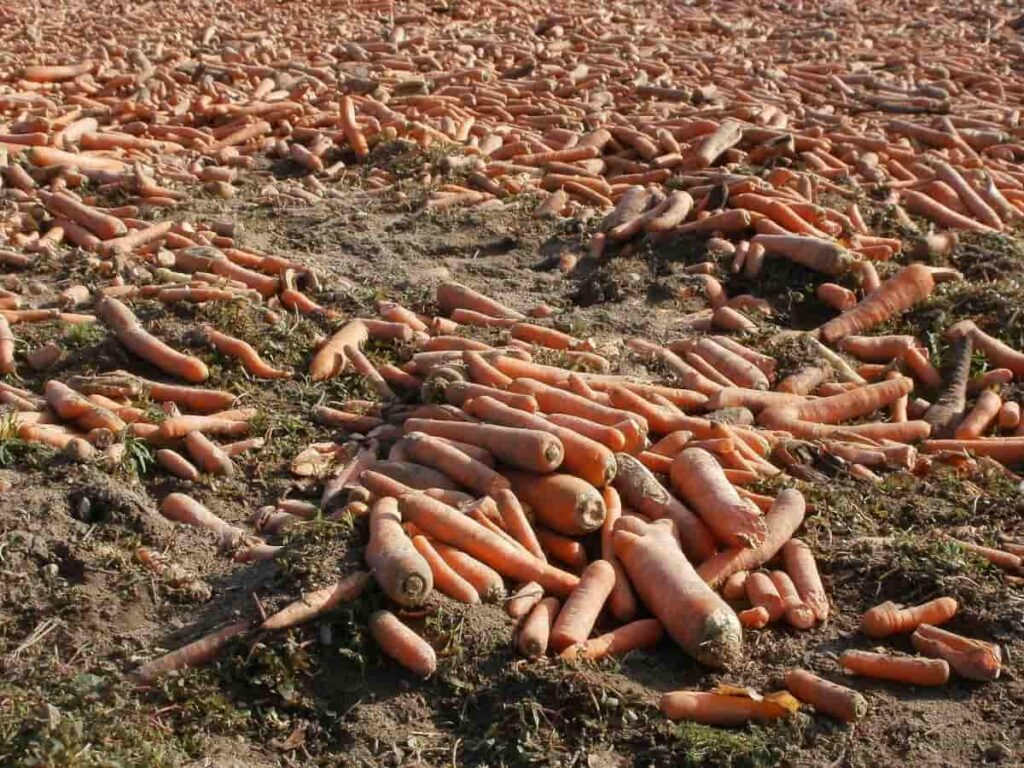
How to start vegetable farming in South Africa
Commercial vegetable farming in South Africa
Commercial vegetable farming in South Africa is viable for those with suitable land, climate, and infrastructure. The industry is worth an estimated R4 billion per year, with the top commercial vegetable growers in the country earning between R30 million and R50 million annually. To start a commercial vegetable farm in South Africa, you will need access to suitable land, water, and agricultural infrastructure.
The climate in South Africa is favorable for growing a wide range of vegetables, from leafy greens to root crops. Before starting your farm, it is important to develop a business plan considering the cost of inputs, labor, and other overhead expenses. It is also essential to consider your target market and what price point you will need to sell your produce to make a profit. With proper planning and execution, commercial vegetable farming can be a profitable enterprise in South Africa.
What vegetables are in high demand in South Africa?
South Africa has a rapidly growing population and an ever-increasing demand for food. This has created a need for more farms and agricultural businesses, including vegetable farms. While many different vegetables are in high demand in South Africa, some of the most popular include potatoes, carrots, tomatoes, onions, and cabbage. Potato farming is one of the most common types of vegetable farming in South Africa.
The country is home to over 200 potato growers producing over 1 million tons of potatoes yearly. Most South African potato farmers grow their crops on small family farms. However, there is an increasing number of larger commercial operations as well. Carrots are another popular vegetable in high demand in South Africa. The country is the world’s second-largest producer of carrots, behind only China.
In case you missed it: Terrace Gardening ideas for Home in India: For Vegetables, Fruits, Flowers, and Herbs
Carrot production has been rising recently due to increasing health consciousness among South Africans. Carrots are typically grown on larger commercial farms but can also be successfully grown on smaller-scale operations. Tomatoes are another staple vegetable in high demand across South Africa.
Tomato farming is typically done on a larger scale than other vegetables due to the high yield potential of the crop. However, tomato farmers must be mindful of market conditions and carefully plan their production to maximize profits. Onions and cabbage are other vegetables widely consumed in South Africa. Onion farming is typically done on a smaller scale than other vegetables due to the lower demand.
Vegetable farming business plan in South Africa
Commercial vegetable farming in South Africa is a profitable business. However, to start a successful vegetable farming business, you must have a well-thought-out business plan. This vegetable farming guide will outline everything you need to know about starting a commercial vegetable farm in South Africa, from the initial costs and planning requirements to the day-to-day running of the farm and the potential profits you can make.
The first step in starting a commercial vegetable farm is to develop a business plan. This should include an analysis of the local market for vegetables, an assessment of your potential customer base, and a production plan outlining how you will grow and sell your vegetables. The business plan should also include financial projections for your first few years of operation.
Once you have developed your business plan, you must obtain the necessary financing. This can be done through loans from banks or other financial institutions, private investors, or government grants. In South Africa, several government initiatives provide funding for small businesses, including agricultural businesses.
After securing financing, you will need to purchase or lease land to grow your vegetables. The farm size will depend on the scale of production you are planning. Once you have procured the land, you will need to prepare it for planting by clearing any existing vegetation and preparing the soil. This process can be done manually or with the help of machinery. Once the land is prepared, you can start planting your vegetables.
How do I start a vegetable farm in South Africa?
If you plan to start a vegetable farm in South Africa, there are certain things that you need to take into consideration. The first is the climate. South Africa has a temperate climate, which is ideal for growing vegetables. However, you will need to choose the right location for your farm. The second is the soil type. South Africa has a variety of soil types, from sandy to clayey. You must choose the right type of soil for your vegetable farm.
In case you missed it: Liquid Fertilizer Guide for Plants: How to Apply, Homemade, Types, Vegetables, Herbs, Lawn, Potted Plants, and Indoors
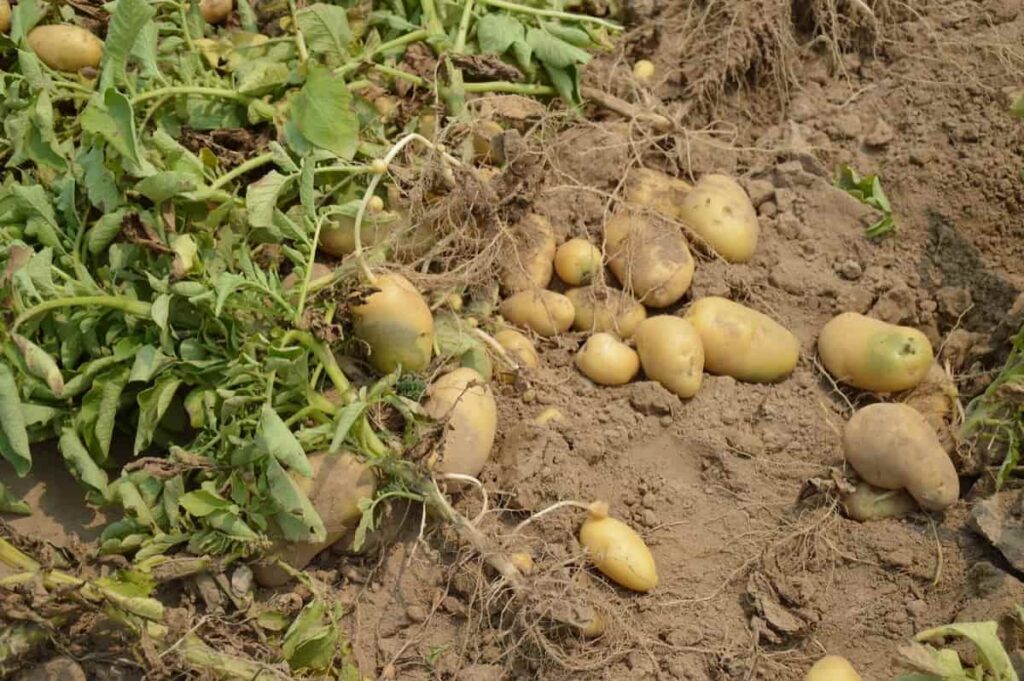
The third is the water supply. South Africa has an abundant water supply, but you will need to ensure that your farm has access to a reliable water source. The fourth is the market for your vegetables. There are many options for selling your vegetables in South Africa, from farmers’ markets to online retailers. You will need to research to find the best option for your business.
The cost is the last thing you need to consider when starting a vegetable farm in South Africa. Vegetable farming can be an expensive business, but there are ways to cut down on costs. One way is to use recycled materials for your farming equipment and buildings. Another way to reduce costs is using organic farming methods, such as composting and crop rotation. Starting a vegetable farm can be a profitable business venture if you are willing to work.
How much land is needed for a vegetable farm in South Africa?
Assuming you would like to start a small-scale commercial vegetable farm in South Africa, the amount of land you need would certainly vary. A rough estimate would be between 1 and 5 hectares; however, this greatly depends on the specific vegetables you plan to grow and your farming method. For example, if you wanted to grow only potatoes, less land would be required than if you wanted to grow a variety of vegetables.
The type of farming method also makes a difference. Using traditional methods requires more land as crops are grown further apart to allow for manual weeding, etc. However, using more intensive methods such as hydroponics or aeroponics, less land is required as crops can be grown closer together, and automated systems take care of tasks such as watering and fertilizing. Regarding cost, purchasing farmland in South Africa can vary widely depending on location and size.
In rural areas, it is possible to find plots of land for sale for around R50,000 per hectare, while in more urban areas, prices can be closer to R1 million per hectare. It is important to research and speak to local farmers before making any decisions. Once you know how much land you need and what it will cost to purchase, you can start planning your vegetable farm! Consider water availability, soil quality, and market access when choosing your location; with careful planning and execution, start a vegetable farm in South Africa.
Vegetable farming methods in South Africa
Vegetable farming in South Africa is a rapidly growing industry with great potential for commercial success. There are many different methods of vegetable farming, each with its advantages and disadvantages. The most common methods of vegetable farming in South Africa are described below.
1. Conventional Farming: Conventional farming is the most common type of vegetable farming in South Africa. It involves growing vegetables in open fields using pesticides and fertilizers. This type of farming is comparatively cheap and easy to set up, but it can damage the environment if not managed properly.
2. Organic Farming: Organic farming is a type of vegetable farming that does not use synthetic pesticides or fertilizers. This farming method is more expensive and time-consuming than conventional farming but is more environmentally friendly.
3. Hydroponic Farming: Hydroponic farming is a type of vegetable farming that uses nutrient-rich water solution instead of soil to grow plants. This gardening method is very efficient and does not require pesticides or fertilizers, but it can be expensive.
In case you missed it: High Yield Hybrid Vegetable Varieties in India: For Winter (Rabi), Summer, and Rainy Season (Kharif)
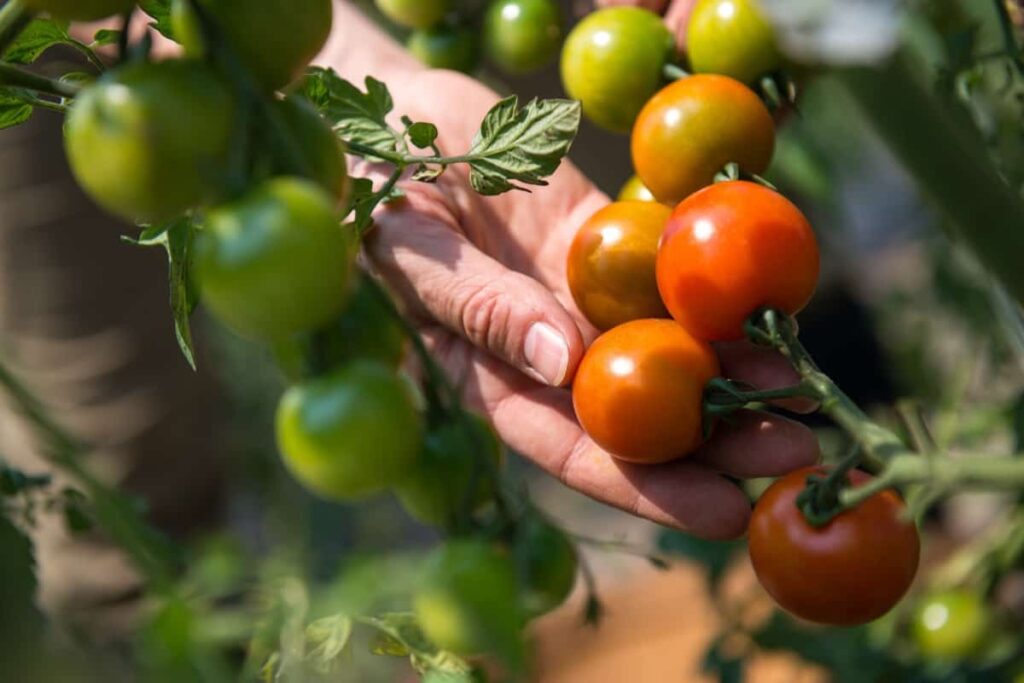
4. Aquaponics Farming: Aquaponics farming combines hydroponic gardening with fish husbandry to create a self-sustaining system where the waste from the fish provides nutrients for the vegetable plants, and the vegetable plants filter the water for the fish. This type of agriculture is highly efficient and environmentally friendly, but it is expensive to set up and maintain.
The most profitable vegetable to farm in South Africa
Regarding farming in South Africa, a number of different vegetables can be grown profitably. However, some vegetables are more profitable than others. The most profitable vegetable to farm in South Africa is potatoes. Here are a few reasons why:
- Potatoes are a relatively easy crop to grow and don’t require a lot of expensive inputs.
- There is always demand for potatoes from local consumers and businesses such as restaurants and food processors.
- Potatoes have a relatively long shelf life, meaning they can be stored and sold throughout the year.
- Potatoes are versatile vegetables used in a wide range of dishes, making them popular with home cooks and professional chefs. If you’re considering starting a vegetable farm in South Africa, potatoes should be at the top of your list!
Types of vegetables to grow in South Africa
Many types of vegetables are grown in South Africa. Some of the most common and popular vegetables to grow in South Africa include:
| Tomatoes | Pumpkins |
| Artichokes | Radish |
| Eggplant | Squash |
| Broccoli | Turnips |
| Brussel sprouts | Mint |
| Green beans | Cilantro |
| Cabbage | Cucumbers |
| Cauliflower | Lettuce |
| Celery | Spinach |
| Chives | Carrots |
| Zucchini | Potatoes |
| Parsley | Onions |
| Peas | Peppers |
| Mushrooms |
Each type of vegetable has different growing requirements, so it is required to do your own research before deciding which vegetables you would like to grow. Once you have decided on the types of vegetables you would like to grow, you will need to develop a commercial business plan and determine your venture’s cost and profit potential.
Tunnel vegetable farming in South Africa
Tunnel vegetable farming in South Africa is a popular option for those looking to start their commercial vegetable farm. The climatic conditions in South Africa are ideal for growing a wide variety of vegetables, and the country has a large market for fresh produce. Tunnel farming allows farmers to control the environment where their crops are grown, making it possible to produce high-quality vegetables year-round.
In case you missed it: How to Grow Vegetables in Aquaponic Systems: Types, Methods, Requirements, and Disadvantages
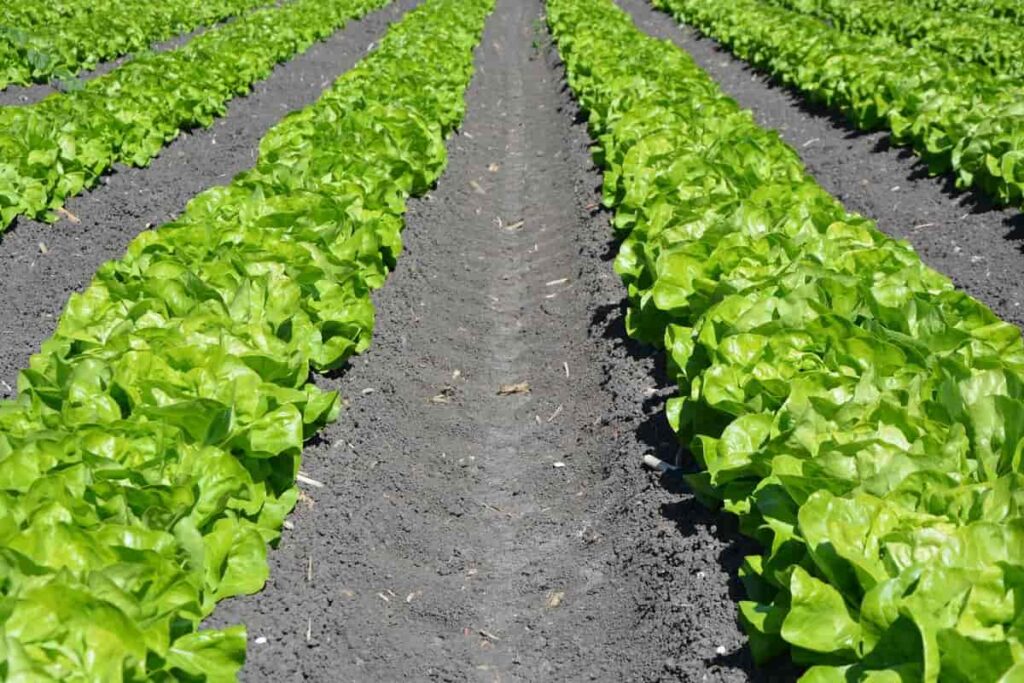
Starting a tunnel farm in South Africa requires a significant investment of capital and a thorough understanding of the business. This guide will provide an overview of what it takes to start a tunnel farm in South Africa, including the cost and profit potential.
Small-scale vegetable farming in South Africa
Vegetable farming on a small scale in South Africa is a viable option for those with limited land and water resources. With the right business plan and cost-effective production strategies, small-scale farmers can profit from vegetable farming. The ideal location for small-scale vegetable farming in South Africa is in the country’s semi-arid regions, where reliable rainfall and irrigation infrastructure is available. These conditions are necessary to ensure a consistent supply of water for crops.
To be successful, small-scale vegetable farmers must clearly understand their target market and what consumers are willing to pay for their produce. They must also effectively manage their costs, including labor, inputs, and transportation. Finally, small-scale vegetable farmers need a sound marketing strategy to sell their products. This may include selling direct to consumers or through wholesale channels.
Hydroponic vegetable farming in South Africa
Hydroponic vegetable farming is a system where crops are grown in nutrient-rich water instead of soil. This farming method allows for a higher yield of vegetables per square meter and requires less water than traditional farming methods. Hydroponic vegetable farming is becoming increasingly popular in South Africa as the country looks for ways to become more self-sufficient in food production.
The South African government has been investing in hydroponic farms and training farmers in this type of agriculture. There are many benefits to hydroponic vegetable farming, including the following:
- Higher yields of vegetables per square meter
- Less water consumption
- Reduced need for pesticides and herbicides
- No soil erosion
- Faster crop turnaround time
If you plan to start your own hydroponic farm, there are a few things you need to know. First, you’ll need to choose the right location for your farm. Hydroponic farms can be set up indoors or outdoors, but it’s important to ensure that your chosen location has access to sunlight and adequate ventilation. You’ll also need to invest in basic equipment, like grow lights, fans, and pumps. Once you have everything in place (setup), you can start growing your crops!
Cost to start a vegetable farm in South Africa
The cost of starting a vegetable farm in South Africa will vary depending on the size and type of farm you want to start. However, some basics are required for all commercial vegetable farms. These include:
- Land: Buying or leasing land can be the most expensive part of starting a vegetable farm. The land price will depend on your desired farm’s location and size.
- Buildings and Infrastructure: You will need to construct or purchase appropriate buildings and infrastructure for your vegetable farms, such as greenhouses, storage sheds, and irrigation systems. These costs can vary significantly depending on the scale of your operation.
- Equipment: You will need to purchase or lease farming equipment, such as tractors, planting, harvesting equipment, etc. Prices for this equipment can also vary widely depending on your needs.
- Seeds and Plants: You will need to buy seeds or plants for your crops. The cost of these will depend on the types of crops you want to grow.
- Labor: If you do not plan to do all the work yourself, you will need to hire workers for your farm. The labor cost will again depend on the size and scope of your operation.
In case you missed it: How to Grow Vegetables in Aquaponic Systems: Types, Methods, Requirements, and Disadvantages
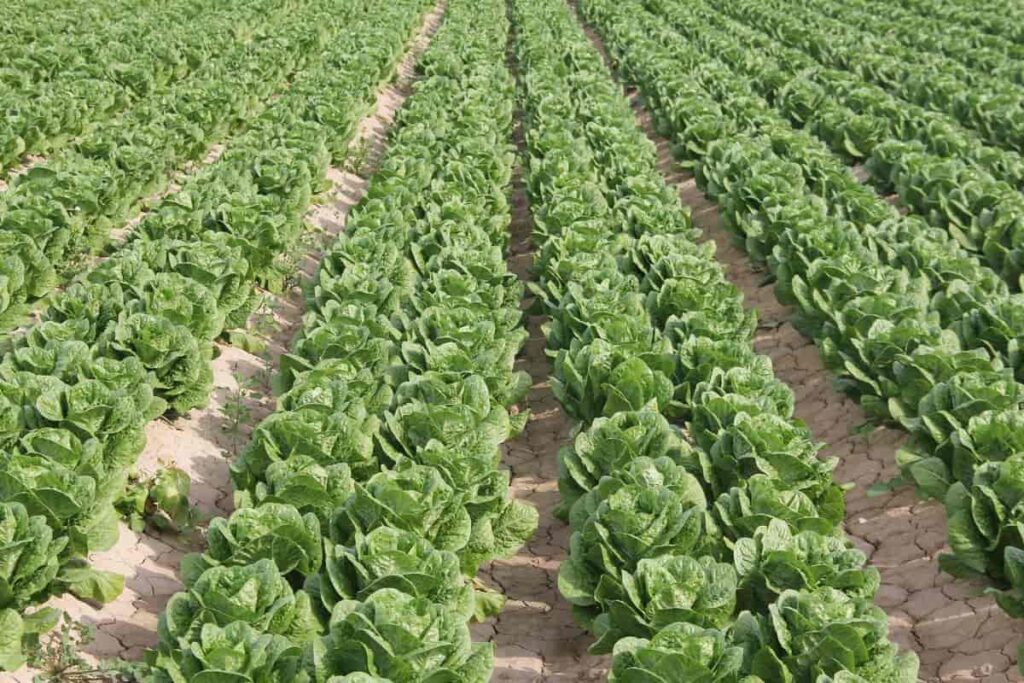
How much money do vegetable farm owners make in South Africa?
The average vegetable farm owner in South Africa makes about R45,000 per month. However, this profit can vary depending on the size of the operation and location of the farm, as well as the type of vegetables grown. For example, owners of larger farms located in more rural areas tend to make more money than those with smaller farms in more urban areas. Additionally, farmers who grow more popular vegetables, such as tomatoes and potatoes, usually make more money than those who grow less popular vegetables.
Conclusion
If you’re considering starting a vegetable farming business in South Africa, this article is for you. We’ve included everything you need to know about starting vegetable farming in South Africa, from writing a business plan to calculating start-up costs and estimating profits. So what are you waiting for? Get out there and start growing your own success.
- Crops Grown in Summer Season: Best Choices for Summer Gardening
- Organic Pest Control for Tomato Farming
- How to Maximize Sheep Farming Profit
- Broccoli Varieties: Choosing the Right Cultivars for Your Farm
- How to Raise Pigs in Your Own Backyard: A Comprehensive Guide
- Budget Friendly Sheep Shed Ideas: Cheap and Low-Cost Tips
- How Much Do Cattle Farmers Make: Revenue Streams in Cattle Farming
- Management Pests and Diseases in Your Cotton Field
- Sheep Farming Business Plan for Beginners
- Aquaponic Farming at Home: A Step-By-Step Guide
- Profitable Village Farming Business Ideas in 2024
- High-Yield Aquaculture: Fast-Growing Fish for Farming
- Effective Fish Pond Construction Techniques for Beginners
- Irrigation and Water Management in Pineapple Farming
- Blossom to Harvest: Mastering Flowering and Pollination in Papaya Farming
- Pig Fattening Essentials: From Selection to Sale for Beginners
- Raising Wagyu Cattle: A Complete Guide for Premium Beef Production
- Soil Types and Their Water Holding Capacity
- Optimizing Irrigation Schedules for Coconut Groves for Enhanced Yield
- Espresso Your Garden: Coffee Grounds for Healthier Acid-Loving Plants
- The Best Soil Mix for Snake Plants: How to Mix Your Own Snake Plant Soil
- Green Thumb Success: Expert Tips for Cultivating Greenhouse Beans All Year Round
- Bloom All Year Round: The Ultimate Guide to Indoor Hyacinth Care
- Eco-Friendly Gardening: How to Make Liquid Fertilizer from Kitchen Waste
- Ultimate Guide to Grow Anise in Pots: Explore Seed Propagation to Harvesting
- Guide to Raising Chester White Pigs: Discover Breed Facts to Growth Management
- Mastering the Elegance: The Ultimate Guide to Weeping Cherry Tree Care, Planting, and Maintenance
- Ultimate Guide to Planting Garlic in Grow Bags: Growing Strategies for Beginners
- How to Fix Spider Plant Leaf-Related Problems: Natural and Organic Remedies
- 10 Reasons Why Your Tulsi Plant is Shedding Leaves: Home Remedies and Solutions
- Optimizing Growth and Yield: The Advantages of Palm Bunch Ash Fertilizer
- Utilizing Neem Oil Extract as a Natural Pesticide for Hydrangea
- From Soil to Harvest: Various Ways in Which Farmers Can Use AI Tools
- Steps to Encourage and Induce Citrus Flowers: A Comprehensive Guide
- How to Fix Snake Plant Leaf-Related Issues: Natural and Organic Remedies
- Transform Your Garden into a Fragrant Oasis with Raat Ki Rani (Night Blooming Jasmine)

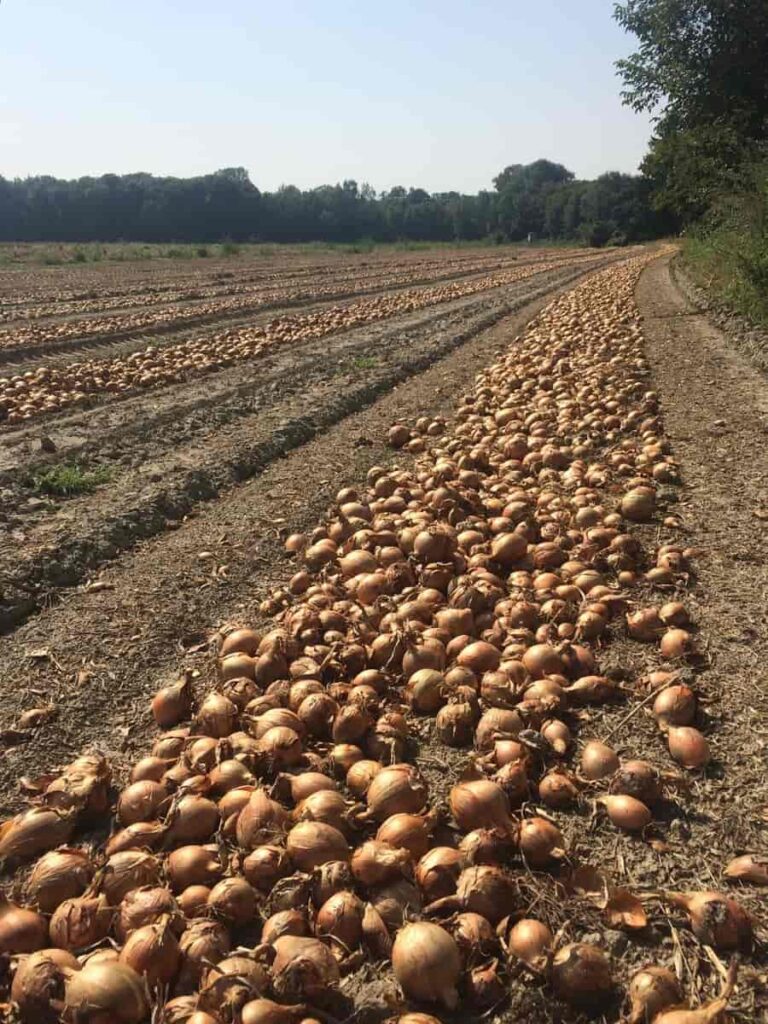
I am so interested on Agricultural farming especially on producing a vegetables but due to lack of Capital to kickstart I am unable to opperate, I am still begging anyone or any sponcer or partnership for intervieneance.i sn owning a piece of Land which is 25 to 30 Hector’s vacant to be used.